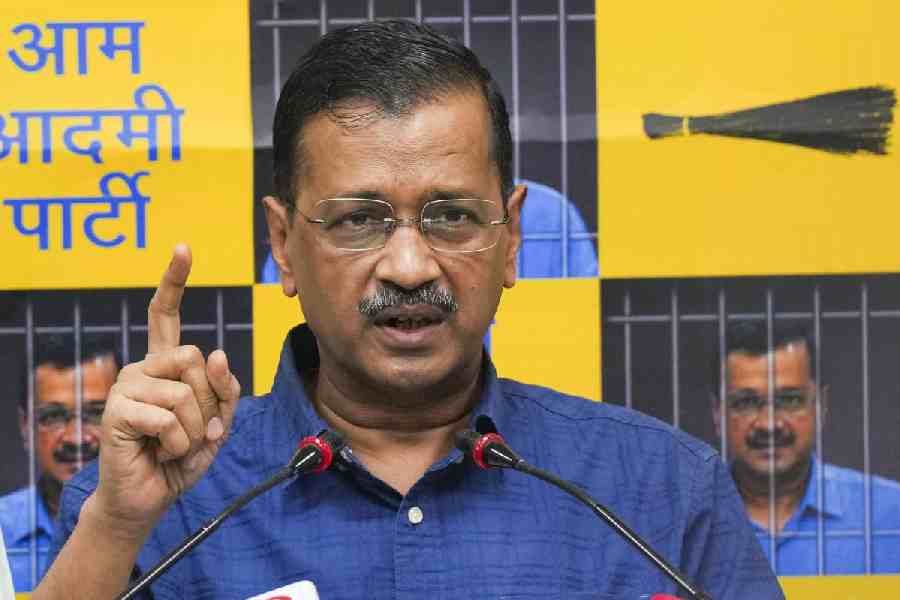The Supreme Court on Friday granted interim bail to Delhi Chief Minister Arvind Kejriwal in a money laundering case lodged by the ED in the alleged excise policy scam but he will remain in jail as the CBI had later arrested him in a related matter. The top court said it is up to Kejriwal to decide if he should continue as chief minister. "We are conscious of the fact that Arvind Kejriwal is an elected leader," a bench of Justices Sanjiv Khanna and Dipankar Datta said while also noting that Kejriwal has suffered incarceration for over 90 days.
It also referred the questions pertaining to legality of his arrest in the Enforcement Directorate (ED) case to a larger bench.
The court said since the matter is concerned with the right to life and the issue of arrest has been referred to a larger bench, Kejriwal be released on interim bail.
The top court framed three questions related to power, necessity of arrest under section 19 of the Prevention of Money Laundering Act and policy of arrest by the ED.
It said Kejriwal will be released on interim bail in terms of the conditions in the order of May 10.
While releasing Kejriwal on interim bail on May 10 for electioneering during the recently concluded Lok Sabha polls, the top court had imposed conditions on him that he will not visit his office or the Delhi Secretariat during the tenure of his interim bail. Besides imposing slew of conditions, it had asked Kejriwal to not sign any official file unless absolutely necessary to obtain the Lieutenant Governor's sanction during the 21-day interim bail period.
On May 17, the top court had reserved its verdict on Kejriwal's plea challenging legality of his arrest by the ED on March 21 in the case.
The apex court had on April 15 sought a response from the ED on Kejriwal’s plea challenging his arrest in the money laundering case. The Aam Aadmi Party (AAP) chief has challenged in the top court the April 9 order of the Delhi High Court that had upheld his arrest in the case.
The high court had upheld Kejriwal's arrest in the case, saying there was no illegality about it and that the ED was left with "little option" after he skipped repeated summonses and refused to join the investigation.
On June 20, he was granted bail by a trial court here on a personal bond of Rs 1 lakh in the case.
However, the ED had moved the Delhi High Court the next day and contended that the trial court's order granting bail to Kejriwal was "perverse", "one-sided" and "wrong-sided" and that the findings were based on irrelevant facts.
The high court, on June 21, imposed an interim stay on the trial court's bail order till passing of an order on ED's application for interim relief. On June 25, the high court had passed a detailed order staying the trial court order.
Kejriwal was also arrested by the CBI on June 26 in connection with the corruption case related to the alleged excise policy scam.
The plea challenging his arrest by the CBI is pending before the Delhi High Court.
The matter relates to alleged corruption and money laundering in the formulation and execution of the Delhi government's excise policy for 2021-22, which has now been scrapped.
Except for the headline, this story has not been edited by The Telegraph Online staff and has been published from a syndicated feed.











